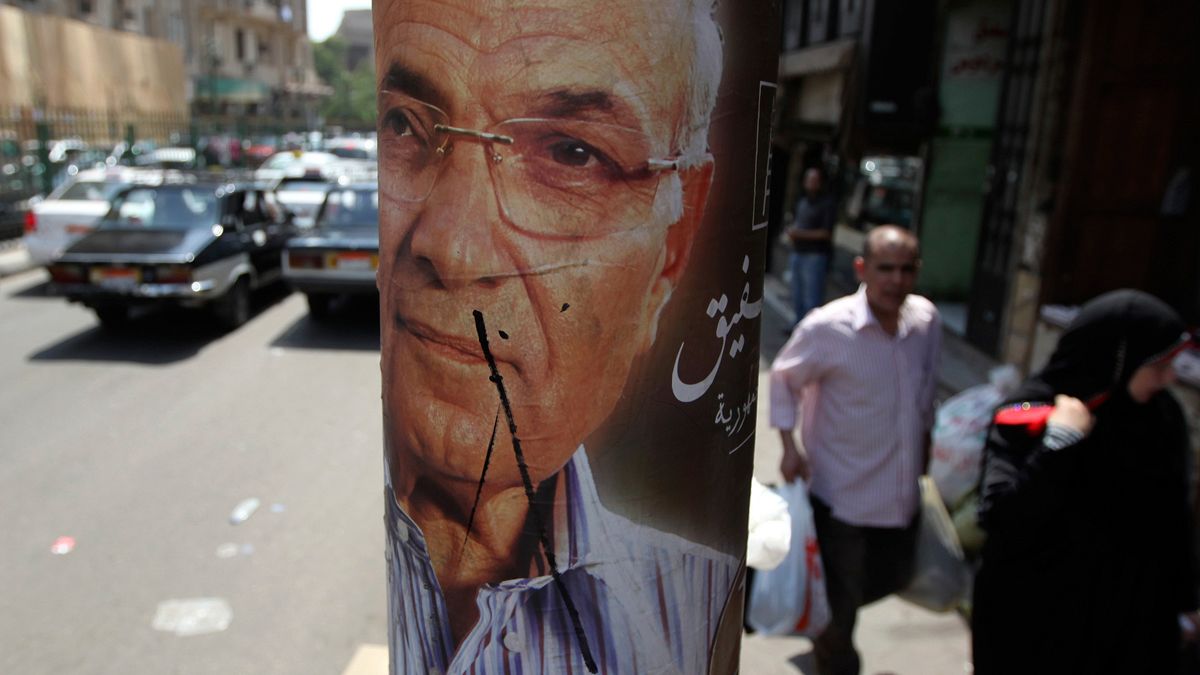There is a growing group of dissenting voters in Egypt, angry that the country’s two presidential candidates have left them with no real choice in the election.
Two decisions by the Supreme Constitutional Court -to dissolve parliament and confirm Ahmed Shafiq’s candidacy – further angered the protesters.
He was former President Hosni Mubarak’s last prime minister, and is seen as the continuation of a corrupt regime that was overthrown last year.
The dissenters are split into two camps: those who want to boycott the election and those who want to spoil their papers.
With a Mubarak-era candidate on the one hand, their only alternative is Mohammed Morsi representing the Muslim Brotherhood.
His critics fear that the Brotherhood has an Islamist agenda, and were he elected, Egypt would become an Islamist state and freedoms would be curtailed.
Whichever man wins, the strength of the dissenters suggests the turmoil Egypt has experienced since Mubarak was toppled 16 months ago will continue after the election.
Fawzi Sadallah from the euronews Arabic service asked our correspondent in Cairo, Riad Muasses, what the feelings are among Egyptians the day after the Constitutional Court dissolved parliament.
“Right now in Egypt, the population is divided. One part supports Ahmed Shafiq, or what one might call the old regime, and the other part is against the old regime and the decision of the constitutional court.
“One way or another, we have the revolution and the counter-revolution, but the fervour of those who support the revolution might diminish because of the recent mistakes made by the Muslim Brotherhood since the parliamentary elections.
“The other party pulling the strings is the Military Council. Personally I would say that the Military Council has manoeuvred intelligently. Firstly, with the trial that cleared many elements of the old regime, and then the dissolution of parliament on Thursday. That’s a major blow for the Muslim Brotherhood, which dominated parliament.
“You know very well that the Military Council is a major player in Egyptian politics. For example, the Egyptian army distributed leaflets calling on people to vote, and they were signed ‘The Department of Moral Affairs and the Armed Forces.’ That shows that they are clearly playing an essential role in these elections in one form or another. They want Shafiq to win, and that’s what has infuriated a major part of the Egyptian population who don’t want the old regime to return,” explained Muasses.
“According to the latest information, what are the future perspectives for Egypt?” asked Sabdallah.
“At the moment, we expect that if the Muslim Brotherhood candidate Mohammed Morsi wins the election, then he will be a ‘symbolic’ president.
“On the other hand, should Ahmed Shafiq win, the Military Council and all the forces of the old regime will be with him, and will support him and then we’ll be faced with a tough administration that would want to to bring back the old regime.
“Today, on the streets of Egypt we have noticed major worries within the country about the return of the old regime. We’ve also noticed worries coming from overseas, because there will, without doubt, be clashes and big demonstrations,” said Muasses.
